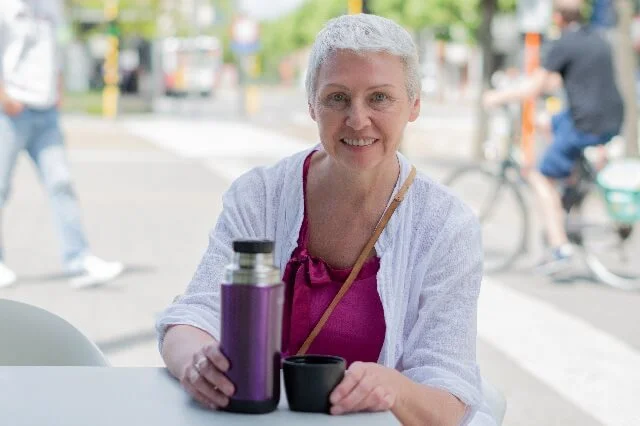When traveling to a new country, it’s important to prioritize safety. This is especially true when visiting the beautiful, historic destination of Italy. Whether you’re exploring the bustling streets of Rome or the serene countryside of Tuscany, being prepared with essential safety knowledge and phrases can make all the difference. In this article, we will cover everything you need to know about safe travels in Italy, from key language phrases to cultural differences and emergency resources.
The concept of safe travels in Italian goes beyond just knowing how to ask for help or directions. It also encompasses understanding local customs and potential safety hazards. By familiarizing yourself with these aspects, you can ensure a smoother and more secure travel experience. From avoiding common scams to navigating public transportation with confidence, there are various elements to consider when it comes to staying safe while exploring all that Italy has to offer.
At the end of the day, embracing different cultures and experiencing new adventures is what makes travel so enriching. However, it’s crucial to strike a balance between exploration and caution.
This article aims to equip travelers with the tools they need for a safe and enjoyable journey through Italy, offering essential phrases for communication, practical safety tips, and insights into cultural considerations. So whether you’re planning a trip to Italy or simply looking to expand your travel knowledge, read on for valuable information on ensuring your safety while traversing this stunning country.
Essential Italian Phrases for Safe Travel
When traveling in Italy, it can be incredibly helpful to know some essential Italian phrases that can help ensure your safety. Whether you find yourself in need of assistance or simply want to communicate effectively with locals, having a few key phrases at your disposal can make a significant difference. Here are some essential Italian phrases for safe travel, along with their translations and pronunciation tips:
- “Aiuto.” – Translation: “Help.” – Pronunciation: AH-yoo-toh
- “Dove si trova la stazione di polizia?” – Translation: “Where is the police station?” – Pronunciation: DOH-veh see TROH-vah lah stah-zee-YOH-neh dee poh-lee-TSEE-ah
- “Ho perso il mio passaporto” – Translation: “I’ve lost my passport” – Pronunciation: oh PEHR-so eel MEE-oh pah-sah-POHR-toh
- “Mi sono perso/a” – Translation: “I’m lost” (masculine/feminine) – Pronunciation: mee SOH-no PEHR-soh/ah
- “Chiamo l’ambasciata” – Translation: “I’m calling the embassy” – Pronunciation: kee-AH-mo lahm-bah-SHAH-tah
These phrases cover a range of potential situations that travelers may encounter while in Italy. From seeking help from authorities to communicating about lost belongings or directions, having the ability to express yourself in Italian can be invaluable.
Understanding and using these essential Italian phrases not only helps ensure your safety but also shows respect for the local culture and people. While many Italians speak English, making an effort to communicate in their native language is greatly appreciated and can go a long way in fostering positive interactions during your travels. Learning these key phrases will not only enhance your overall travel experience but also contribute to a safer and more enjoyable trip.
Safety Tips for Traveling in Italy
Navigating the public transportation system in Italy can be an essential part of safe travel:
- Always validate your ticket before boarding a train or bus to avoid fines.
- Example: “Dove posso convalidare il biglietto? Where can I validate my ticket?” (doh-veh pohs-so kon-vah-leed-ar-ray eel beel-yet-toh?)
- Pay attention to your bags and personal items while using public transportation, and don’t leave them unattended.
- Example: “Attenzione ai borseggiatori. Watch out for pickpockets.” (aht-tehn-tsyohneh ah-ee bor-sedd-jya-toh-ree.)
- Familiarize yourself with the local transportation maps and schedules in advance to minimize confusion during your travels.
- Example: “Mi potrebbe dire dove si trova la fermata dell’autobus? Could you tell me where to find the bus stop?” (mee poh-trehb-bee dee-reh doh-veh see trow-vah lah fair-maht-tah dell au-toh-boos?)
By understanding these safety tips and practicing vigilance while traveling in Italy, tourists can ensure a safer and more enjoyable experience during their visit.
Emergency Numbers and Resources in Italy
When traveling in Italy, it’s important to be prepared for any potential emergencies that may arise. Knowing the correct phone numbers to call and having access to resources can make a big difference in staying safe while in a foreign country. Here are some key emergency numbers and resources that travelers should be aware of:
- Emergency Services: In case of a medical emergency, travelers should dial 118, which is the emergency medical services number in Italy. For other types of emergencies, such as accidents or incidents that require police assistance, the number to call is 112.
- Embassy Contacts: It’s always a good idea for travelers to have their embassy’s contact information on hand. In the event of a serious situation, your embassy can provide assistance and support. Be sure to have the phone number and address of your country’s embassy or consulate in Italy readily available.
- Local Tourist Information: Travelers should familiarize themselves with local tourist information offices in the areas they will be visiting. These offices can provide valuable assistance, maps, and advice on staying safe in specific locations. It’s also a good idea to know the location and contact information for tourist police stations if they are available in the cities you plan to visit.
By having these important numbers and resources at your fingertips, you’ll be better equipped to handle unexpected situations while traveling in Italy. It’s always better to be prepared for an emergency than to find yourself without any means of getting help when you need it most.
Cultural Differences and Safety Considerations
When traveling to Italy, it’s important to be aware of cultural differences that may impact safety. Cultural norms and social customs can vary significantly from country to country, so being mindful of these differences can help ensure a safe and respectful experience while exploring Italy.
Respecting Local Customs
One important aspect of staying safe while traveling in Italy is respecting local customs and traditions. This includes being aware of dress codes, especially when visiting religious sites or participating in cultural events. In some parts of Italy, it may be considered disrespectful to wear revealing clothing or to act loudly in public spaces. By familiarizing yourself with these customs and adhering to them, you can avoid potential conflicts and ensure a more positive travel experience.
Staying Safe in Social Interactions
In Italy, social interactions often involve close proximity and expressive gestures. While this is a normal part of Italian culture, it’s important for travelers to remain cautious in crowded areas or busy tourist spots. Pickpocketing is a common issue in popular tourist destinations, so remaining vigilant and keeping personal belongings secure at all times is essential. Additionally, travelers should be mindful of their personal space and respectful when interacting with locals to avoid any misunderstandings or unintended offenses.
By understanding and acknowledging the cultural differences present in Italian society, travelers can navigate the country more safely while also showing respect for the local way of life. This awareness will not only contribute to a more enjoyable travel experience but also help prevent any potential safety concerns that may arise from cultural misunderstandings.
Safe Transportation in Italy
Traveling around Italy can be an exciting and convenient experience, but it’s important to prioritize safety when using transportation. The country offers a variety of options for getting around, including trains, buses, and taxis. Whether you’re exploring the bustling streets of Rome or taking in the coastal views along the Amalfi Coast, being mindful of safety during your journey is essential.
When using public transportation in Italy, always be aware of your surroundings and keep an eye on your belongings. Pickpocketing can occur in busy areas such as train stations and crowded buses, so it’s important to secure your personal items and avoid displaying valuables openly. Additionally, be cautious of scams that can target tourists, such as individuals posing as ticket inspectors or offering unsolicited assistance with luggage.
| Safety Tips for Using Public Transportation | Information |
|---|---|
| Keep belongings secure | Avoid leaving bags unattended and consider using a money belt or hidden pouch for valuable items. |
| Be vigilant in crowded areas | Pickpocketing is common in busy locations, so remain alert and attentive to your surroundings. |
| Verify ticket validity | When purchasing tickets for public transportation, ensure that they are legitimate and only buy from authorized sellers. |
In addition to public transportation, taxis are a popular way to get around Italian cities and towns. To ensure a safe experience when using taxis, opt for licensed cabs from official taxi stands rather than accepting rides from unauthorized drivers. Always confirm the fare with the driver before beginning your journey and have a basic idea of the route to your destination to avoid unnecessary detours.
Overall, by staying informed and taking precautionary measures during your travels in Italy, you can enjoy the diverse landscapes and cultural richness without compromising on safety. Remember to familiarize yourself with local transportation guidelines and be proactive in safeguarding yourself against potential risks while on the move.
Safe Accommodations in Italy
When planning a trip to Italy, it’s essential to consider safe accommodations to ensure a secure and enjoyable stay. Whether you’re staying in a hotel, hostel, or vacation rental, there are several factors to take into account when choosing where to stay.
One important consideration for safe accommodations in Italy is the location. It’s advisable to research different neighborhoods and areas of the city where you’ll be staying to determine which are known for safety and security. Look for accommodations that are situated in well-lit and populated areas, especially if you plan on walking around at night.
In addition to considering the location, it’s crucial to assess the security measures in place at your chosen accommodations. Look for properties that have secure entry systems, such as key cards or codes, as well as 24-hour front desk staff.
It’s also a good idea to inquire about any additional security features, such as in-room safes or lockable storage options for valuables. By taking these precautions, you can minimize the risk of theft or unauthorized access to your accommodations during your stay in Italy.
A Personal Anecdote
During my travels in Italy, I had the opportunity to experience the importance of staying safe firsthand. One particular anecdote that stands out is when I was exploring the bustling streets of Rome and found myself in a crowded market. As I browsed through the various stalls, I suddenly felt a tug on my bag.
Instinctively, I held onto it tightly and turned around to find a pickpocketer attempting to steal from me. This encounter served as a stark reminder of the prevalence of pickpocketing in tourist-heavy areas.
Lessons Learned: Being Vigilant and Aware
This experience taught me the importance of being vigilant and aware of my surroundings at all times while navigating through popular tourist spots in Italy. It’s crucial to keep personal belongings secure and within sight, especially in crowded areas where pickpocketing is common. Additionally, I made it a point to familiarize myself with emergency numbers and resources beforehand, so I would know exactly what to do in case I encountered any safety concerns.
Building Cultural Awareness for Safety
In addition to being mindful of potential threats like pickpocketing, my time in Italy also underscored the significance of building cultural awareness for safety purposes. Understanding local customs and norms can help travelers avoid inadvertently causing offense or putting themselves in risky situations. Whether it’s knowing how to dress appropriately or respecting certain traditions, immersing oneself in the local culture can contribute to a more secure and enjoyable travel experience.
Overall, my personal anecdote emphasized the need for proactive measures when it comes to staying safe while traveling in Italy. By staying vigilant, culturally sensitive, and well-prepared with essential safety information, travelers can navigate their Italian adventures with greater peace of mind.
Conclusion
In conclusion, prioritizing safe travels in Italy is essential for any traveler. From learning key phrases in Italian to understanding cultural differences and navigating transportation and accommodations safely, there are many considerations to keep in mind. By being vigilant, respectful of local customs, and informed about emergency resources, travelers can minimize risks and enjoy a safe and memorable experience in Italy.
It cannot be stressed enough how important it is to stay safe while traveling. Whether it’s avoiding pickpocketing scams or understanding the nuances of Italian culture, taking steps to ensure personal safety can make all the difference in a successful trip. By heeding the advice provided in this article and actively seeking out additional information on staying safe in Italy, travelers can feel more confident as they explore this beautiful country.
Ultimately, my personal experience with safe travels in Italy has only reinforced the importance of these considerations. Balancing adventure with awareness has allowed me to fully enjoy the rich history, stunning landscapes, and delicious cuisine of Italy without compromising on safety. I encourage all readers planning a trip to Italy to take these tips seriously and prioritize their safety above all else. Safe travels.
Frequently Asked Questions
How do you say bon voyage in Italian?
In Italian, “bon voyage” is translated as “buon viaggio.” This phrase is commonly used to wish someone a good and safe journey as they embark on a trip.
How do you say have a good trip in Italy?
The phrase “have a good trip” in Italian is translated as “buon viaggio.” This expression is a simple and polite way to wish someone well as they begin their travels, conveying good wishes for their journey ahead.
How do you wish someone a safe trip?
Wishing someone a safe trip in Italian can be done by saying “buon viaggio” or “viaggio sicuro.” Both phrases express the sentiment of hoping for a secure and uneventful journey for the person who is about to travel. It’s a way to convey concern for their well-being while they are away from home.

I’m a passionate traveler, writer, and Italophile. My fascination with Italy’s history, art, and culture has led me on countless adventures across the Italian landscape. Through “I Live Italy,” I share my love for this extraordinary country and aims to inspire others to explore its boundless beauty.




